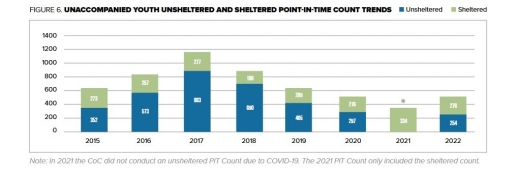 By Daniela Torres
By Daniela Torres
Jacob Pamus also contributed to this article
March 21, 2023 (San Diego) – A lawsuit has been filed seeking to block implementation of California’s CARE Courts program. Disability Rights California, Western Center on Law and Poverty, and the Public Interest Law Project have filed a petition at the CA Supreme Court because they believe that the program is unconstitutional.
Gov. Gavin Newsom designed, championed and signed this into law last year to mandate care for people with severe mental illness, primarily those who are homeless and refusing care.
But the human rights groups believe the program could strip away people’s autonomy and that affordable housing should be what needs to be at the front and center.
How the CARE Court system would work
The Community Assistance, Recovery, and Empowerment Act (CARE) would provide individuals who struggle with substance abuse disorders or have severe mental illnesses with personal care plans that are befitting their situation. The program’s purpose is to provide support and treatment to individuals that meet certain criteria in order to rehabilitate and give them the opportunity of long-term recovery.
It would allow a family member, first responder, or county behavioral health professional to seek court-ordered services for those with severe mental illness. Because of this, the primary target group for this program are homeless people.
The plan itself can last up to a year; however, it can also be extended for another additional 12 months if a judge deems this necessary. The new CARE Court’s safeguards are intended to prevent past problems of patients locked away for years without recourse.
Gov. Gavin Newsom proposed CARE Court in March 2022 and signed the legislation that would enact it a few months later in September of 2022. According to CA.gov, the program already has already had a significant amount of funds invested into it - with $63 million CARE Court start-up funds provided “for counties, courts, self-help and legal aid.”
The program is expected to begin as early as October 2023, but there is a possibility that it could be delayed. As of this year, the program has had lawsuits filed against it by disability and civil rights groups.
Disability Rights California (DRC) works to protect and advocate for Californians with disabilities. This agency, along with many more disability and civil rights advocates, wrote a letter in opposition to CARE Courts, which can be found here. The main concerns listed by them are:
- Care Court does not guarantee housing as a solution to address homelessness;
- Evidence shows that adequately-resourced intensive voluntary outpatient treatment is more effective than court-ordered treatment;
- Care Court will perpetuate institutional racism and worsen health disparities;
- Flaws in SB 1338’s reliance on a person’s lack of capacity to make medical decisions;
- Use of the terms “Supportive Decision-Making” and “Supporter” reflects a misunderstanding of the concepts behind the terms and obscures the involuntary nature of CARE Court;
- Critical terms and concepts are not defined by SB 1338 or elsewhere in California law.
Newsom’s office responded to the lawsuit, on January 26th 2023. “There’s nothing compassionate about allowing individuals with severe, untreated mental health and substance use disorders to suffer in our alleyways, in our criminal justice system, or worse — face death,” said Daniel Lopez, the Governor’s Deputy Communications Director. “While some groups want to delay progress with arguments in favor of the failing status quo, the rest of us are dealing with the cold, hard reality that something must urgently be done to address this crisis.”
Much of the criticism lies in the belief that the program is forcefully detaining individuals and requiring them to get treatment. This takes away their autonomy and their right to make the decision to get help on their own.
The program has already been approved. Unless the court intervenes, San Diego will be one of the first counties to start enacting it by October 2023 along with San Francisco and Riverside. All counties in California will be enforcing it by 2024.
The San Diego Regional Task Force on Homelessness is trying to deal with the homelessness issue in San Diego. As of September 2022, out of 15,327 people that have experienced homelessness for the first time, 11,861 of those people found housing with the help of the RTFH.
RTFH believes that having a home is a basic human right and should be afforded to all San Diegans. By 2027 RTFH plans to end veteran homelessness, end youth homelessness, reduce unsheltered homelessness by 50%, prevent and end homelessness among older adults, and end family homelessness. The plan to achieve these goals is laid out in the RTFH action plan.
The action plan also outlines goals RTFH plans to achieve that would improve the system to prevent homelessness, these goals are to Create a Strong and Equitable Regional System to End Homelessness, Aggressively Expand Permanent Housing Options, Meet the Needs of People Experiencing Unsheltered Homelessness, Create Safe, Low Barrier and Housing-Focused Shelter, and Reduce the Flow of People Entering Homelessness.







These charts were taken from the RTFH action plan.
“According to the 2020 Point-In-Time (PIT) Count (conducted prior to COVID-19), there were a minimum of 7,638 people experiencing homelessness on a single night in January 2020 (pre-pandemic), with just over half living unsheltered.” (RTFH action plan, 13).
The cause of homelessness is a complex issue, the biggest factors are lack of affordable housing, unlivable wages, lack of public assistance, and poor mental health treatment. The housing crisis in San Diego is a specific reason as to why homelessness is such an issue here.
CARE Court could prove to be a step in the right direction in fighting homelessness if done with compassion and appropriate care. It could also open up opportunities for new proposals that can help more than just a certain percentage of homeless people.
Sources:
https://www.chhs.ca.gov/care-act/#a-paradigm-shift







Recent comments